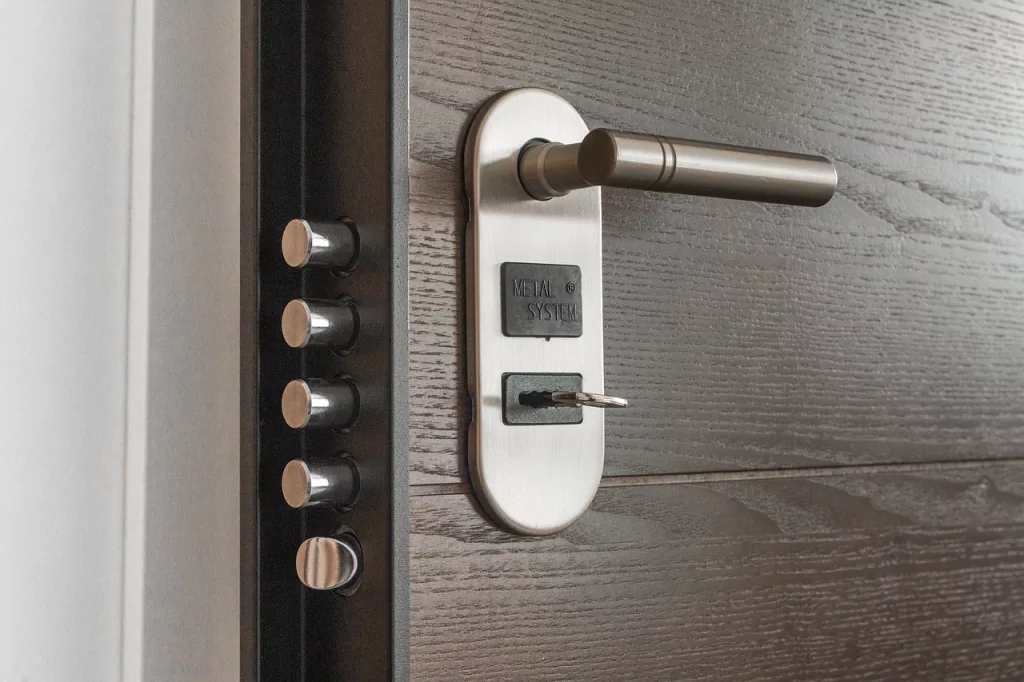Upgrading Home Locks: Should You Re-Key or Replace?
Over time, home locks can become worn out or the keys can end up in the hands of too many people. When it’s time to boost your home security by upgrading locks, two options exist – re-keying your existing locks, or doing a full replacement. But how do you choose? Here we’ll compare the pros and cons of re-keying vs. replacing to help guide your decision.
Re-Keying Existing Locks
Re-keying involves re-pinning the lock cylinder with new pins at different positions to create a new key combination. Here are the main benefits of re-keying:
- Cost – Re-keying is significantly cheaper, with prices from $15-50 per lock. Replacement locksets can cost $50-$500 each.
- Convenience – A locksmith can re-key locks on-site, often in under an hour. No need to remove door hardware.
- Maintain hardware – You keep the existing lock bodies you’re already familiar with.
- Familiar feel – The keyway and turning motion stay the same for all re-keyed locks.
- Environmental – Less waste since you don’t discard old locks.
There are some limitations to re-keying to consider as well:
- Old locks – If current locks are very outdated or damaged, replacement may be better. Re-keying can’t fix internal wear and tear.
- Limited key options – Choice of new keyways may be restricted with re-keying.
- Matching hardware – All old locks may not match, leading to a disjointed appearance.
- Security – Re-keying doesn’t provide the same level of security as all new locks.
Re-keying is best for homeowners with locks in generally good condition who want an affordable upgrade without changing out all hardware. It also allows creating different keys for separate building areas like the main house, guest house or garage apartment.
Replacing Door Locksets
For a major refresh, full lock replacement provides these advantages:
- Latest technology – Install modern lock designs with the newest security features.
- Matched hardware – All new locks will match and coordinate throughout your home.
- Improved security – New locks boost protective strength.
- Wider selection – Choose new finishes, levers, keyways, smart locks, etc.
- Fix issues – Replacing eliminates sticking, grinding or locking problems.
The downsides of replacing door locks include:
- Cost – Buying all new locksets gets very pricey.
- Labor intensive – Existing locksets must be uninstalled before installing new.
- Waste – You discard functional old hardware that could be re-used.
- Disruption – The process takes longer compared to quick re-keying.
Replacement allows a totally fresh start with advanced security features and consistent appearance throughout your home. This is the best route for dated locks that are very old or damaged.
Other Considerations
Here are a few additional factors to help decide between re-keying and replacement:
- Home value – Replacing locks can increase resale value by modernizing the look and security.
- Number of locks – Re-keying is less realistic for homes with 20+ locks.
- Lock brands – It’s easier to re-key brands with interchangeable cores like Schlage, Yale, and Kwikset.
- Budget – Re-keying is more budget friendly overall.
- DIY or professional – Re-keying requires a locksmith’s expertise, while handy homeowners can tackle replacements.
Proper installation is critical to security for both options. Allow our licensed locksmiths to complete the work to ensure correct fitting and smooth function.
In Conclusion
As you can see, both re-keying and full replacement have their own sets of pros and cons. Consider your budget, security needs, convenience, and other factors. We’re happy to provide quotes for re-keying your existing locks versus replacing them to help you make the best decision for your home. Contact us today to get started securing your home with upgraded locks.


